ELC4 Deadline Extended (April 19)
EXTENSION:
New deadline April 19
The submission page is here.
We are extending the deadline for submissions to the Electronic Literature Collection Volume 4 to April 19th. We appreciate that the impact of COVID-19 as an international health emergency may prevent potential submissions from parts of the world affected, and so are extending the deadline to mid-April. If you have already submitted, you will have an option to revise or update your submission, and if you have not yet submitted, and have any issues with the submission process, including the video documentation, please reach out to us.
Video Documentation:
We have received a number of questions relating to the video documentation requirement, and so would like to provide some clarification. The file size limit is 100MB. Our recommendation is to record the work in a resolution no greater than 1200×768, and to use a codec based on the nature of the graphics in the work. We ask that you document at least a single traversal of the work if it is multicursal. This is so that we can make a decision on the work’s availability to future scholars and teachers in the case that the original platform is no longer viable. For some works, a traversal does not make sense, and so we are looking for documentation of the core features and essence of the work and its contributions. For a VR work, this could include a recording of a session, though it is important such sessions are long enough to represent the work and not simply function as a trailer for the work.
We are grateful to everyone who has submitted and who plan to submit, and hope that everyone is able to take appropriate measures during this pandemic.
ELC4Â Electorial Collective
ELC 4: Call for Submissions
Call for Submissions
Electronic Literature Collection Volume 4
Accepting submissions: 17 December 2019 – 15 March 2020
pdf version
The Electronic Literature Organization (ELO) seeks submissions for Volume 4 of the Electronic Literature Collection.
From Twine games to “physical†literature, remixes to hypertext, kinetic poetry to ARGs and Twitter bots, all types of digital literary submissions are welcome. Electronic literature (or e-lit) thrives at the intersection of digital media and textuality. The ELO offers a broad definition of e-lit as “works with important literary aspects that take advantage of the capabilities and contexts provided by the stand-alone or networked computer†(https://eliterature.org/pad/elp.html). Examples of the range of writing previously collected in Volumes 1, 2 and 3 are available at http://collection.eliterature.org.
Please visit the ELC4 site for instructions on how to submit.
ELO restores frAme Journal to the Web
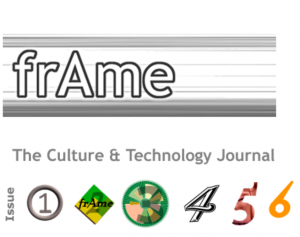
Announcing the restoration of frAme: Online Journal of Culture & Technology, published by the trAce Online Writing Centre from 1995-2005, has been reconstituted and available to the public thanks to the Electronic Literature Organization (ELO, eliterature.org).
Founded by Dr. Sue Thomas at Nottingham Trent University (Nottingham, England) and edited by Simon Mills, the journal released six issues (published from 1999-2001), featuring 60 works by some of the most important names in media art and scholarship today, including: Mark Amerika, Mez Breeze, Alan Sondheim, Deena Larsen, Belinda Barnet, M. D. Coverley, Talan Memmott, Rainer Strasser, and Patrick Lichty.
“The journal represents an important cultural artifact that speaks to a time in which writers and artists were experimenting with the electronic medium and produced works that challenged traditional publication methods,†according to Dene Grigar, ELO President and Director of the Electronic Literature Lab.
The Electronic Literature Organization restored this journal through the efforts of faculty, students, and staff at the Electronic Literature Lab at Washington State University Vancouver as part of its Electronic Literature Archives initiative.
“frAme heralded a time in which scholars and artists were transcending space and time to publish freely to the unknown audience of the, then, new World Wide Web, breaking down international borders and defying print conventions,†said Grigar.
In the brief time frAme was published, web-based practices themselves changed rapidly, from how files were named to how information was coded. Besides providing insights into digital literary art and scholarship of the late 20th Century, frAme points to the changes afoot in publishing and in the communication networks linking people and ideas
Grigar added, “frAme represents the artistic and scholarly vision of a pioneering community whose influence can be felt beyond its base in Nottingham, UK. The artists and writers found in the archives hail from many countries and reflect a global perspective that the trAce Online Writing Centre sought to nurture and share.â€
ELO’s future plans include resurrecting the five special issues of frAme, published from March 20, 2003-November 25, 2004, as well as the trAce site, which hosted forums, competitions, online courses, and other events and activities, and personal archives donated to ELO by trAce’s founder, Sue Thomas.
The site can be found at https://elo-repository.org/trace/.
The Electronic Literature Organization, or ELO, is A 501(c)(3) nonÂprofit organization composed of an international community that includes writers, artists, teachers, scholars, and developers. The Organization’s focus is new literary forms that are made to be read on digital systems, including smartphones, Web browsers, and networked computers. ELO is an international organization of artists and scholars, currently based at Washington State University-Vancouver.
For more information contact:
Name: Dene Grigar
dgrigar at me.com
ELO at Baby Castles Jan 4
BABYCASTLES
Jan 4, 2018, 8pm
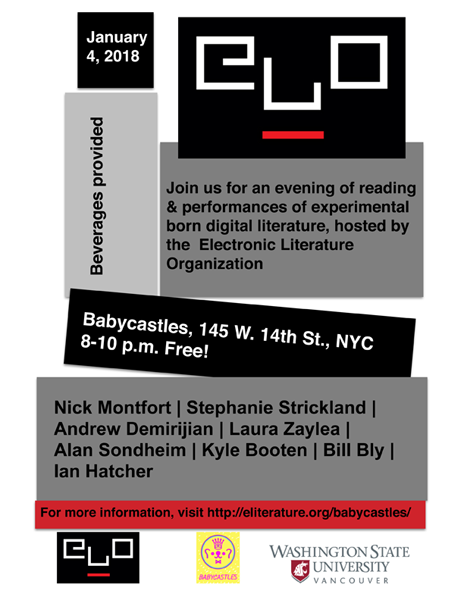

Join the Electronic Literature Organization at an evening of readings and performances at Babycastles, located at 145 W. 14th St., NY, NY
The event takes place on Thursday, January 4, from 8-10 p.m. It is free and open to the public.
Featured Artists and Works Performed:
- Nick Montfort, “The Truelistâ€
- Stephanie Strickland, “Hours of the Nightâ€
- Andrew Demirijian, ‘Pan-Terrestrial People’s Anthem’.
- Laura Zaylea, “Style Guide for Erasing Human Dignityâ€
- Alan Sondheim, “Splatterâ€
- Kyle Booten, “Gymnasionâ€
- Bill Bly, We Descend, Volume 3
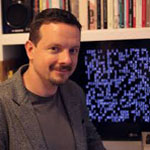 Nick Montfort, “The Truelistâ€
Nick Montfort, “The Truelistâ€
 Nick Montfort’s computer-generated books of poetry include #!, the collaboration 2×6, Autopia, and The Truelist, the first in the new Using Electricity series from Counterpath. Among his more than fifty digital projects are the collaborations The Deletionist, Sea and Spar Between, and Renderings. His digital artwork was shown this summer at Babycastles in New York and in Boston City Hall. He has six books out from the MIT Press, most recently The Future (in the Essential Knowledge series). He is professor of digital media at MIT and lives in New York and Boston. You can find this with all the italics in place here: http://nickm.com/me.html#summary
Nick Montfort’s computer-generated books of poetry include #!, the collaboration 2×6, Autopia, and The Truelist, the first in the new Using Electricity series from Counterpath. Among his more than fifty digital projects are the collaborations The Deletionist, Sea and Spar Between, and Renderings. His digital artwork was shown this summer at Babycastles in New York and in Boston City Hall. He has six books out from the MIT Press, most recently The Future (in the Essential Knowledge series). He is professor of digital media at MIT and lives in New York and Boston. You can find this with all the italics in place here: http://nickm.com/me.html#summary
Stephanie Strickland, “Hours of the Nightâ€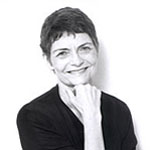
Stephanie Strickland has published 8 books of poetry, most recently Dragon Logic and V: WaveTercets / Losing L’una, and 11 works of electronic literature. Zone : Zero, book + CD, includes the poem slippingglimpse which maps text to Atlantic wave patterns. Recent digital poems include House of Trust with Ian Hatcher and Hours of the Night with M.D. Coverley. A volume of New & Selected is forthcoming in early 2019. http://stephaniestrickland.com

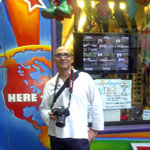 Andrew Demirijian, “Pan-Terrestrial People’s Anthemâ€
Andrew Demirijian, “Pan-Terrestrial People’s Anthemâ€
Andrew Demirjian is an interdisciplinary artist who creates experimental assemblages of image, sound and text. His practice features a heightened attention to the role of sound and language and uses constraint systems, chance operations and remixing to produce the work. The pieces take the form of interactive installations, digital poems and audiovisual performances. Andrew’s work has been exhibited at The Museum of the Moving Image, Fridman Gallery, The Newark Museum, Eyebeam, Rush Arts, Fieldgate Gallery, the Center for Book Arts, LMAK Projects and many other galleries, festivals and museums. The MacDowell Colony, Puffin Foundation, Artslink, Harvestworks, Clocktower Gallery, Bemis Center, LMCC and the New Jersey State Council on the Arts are among some of the organizations that have supported his work. Andrew teaches theory and production courses in emerging media in the Film and Media Department and Integrated Media Arts MFA program at Hunter College. In 2018 he will be a Fellow at the MIT Open Documentary Lab working on a language analysis and visualization project.
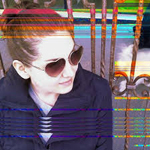 Laura Zaylea, “Style Guide for Erasing Human Dignityâ€
Laura Zaylea, “Style Guide for Erasing Human Dignityâ€

Laura Zaylea is a media artist and Assistant Professor at Temple University in Philadelphia. Recent e-lit works include the web-based multimedia novel Closer Than Rustand the “locative romance†and grammar guide Speak2MeInCode. She is currently working on an interactive documentary about LGBTQ families, which can be found at www.LGBTQ-family.com. Laura holds a BA from Brown University and MFA from the San Francisco Art Institute. More about her creative work can be found at www.LauraZaylea.com. Closer Than Rust – https://laurazaylea.com/creative-work/ctr/. Speak2MeInCode – https://speak2meincode.com/.
Alan Sondheim, “Splatterâ€
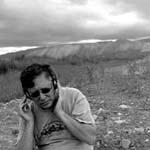 Alan Sondheim is a city-based new media artist, musician, writer, and performer concerned with issues of virtuality, and the stake that the real world has in the virtual. He has worked with his partner Azure Carter among others. Sondheim is interested in examining the grounds of the virtual and how the body isinhabited. He performs in virtual, real, and cross-over worlds; his virtual work is known for its highly complex and mobile architectures. He has used altered motion-capture technology extensively for examining and creating new lexicons of behavior. His current work is centered around notions of gamespace, ‘edgespace’ (the border areas of gamespace) and ‘blankness,’ projections around edgespace. He’s been developing a theory of semiotic splatter / splatter semiotics, dealing with fast-forward literatures of twitter, politics, 4chan, facebook, etc. His writing stems out of codework, a problematic style in which code substrates and surface content interfere with each other – in which, in other words, the textual body and body of text are deeply entangled. His current music is based on the impossibility of time reversal, on fast improvisation, and anti-gestural approaches to playing. His most recent work is this short biography.
Alan Sondheim is a city-based new media artist, musician, writer, and performer concerned with issues of virtuality, and the stake that the real world has in the virtual. He has worked with his partner Azure Carter among others. Sondheim is interested in examining the grounds of the virtual and how the body isinhabited. He performs in virtual, real, and cross-over worlds; his virtual work is known for its highly complex and mobile architectures. He has used altered motion-capture technology extensively for examining and creating new lexicons of behavior. His current work is centered around notions of gamespace, ‘edgespace’ (the border areas of gamespace) and ‘blankness,’ projections around edgespace. He’s been developing a theory of semiotic splatter / splatter semiotics, dealing with fast-forward literatures of twitter, politics, 4chan, facebook, etc. His writing stems out of codework, a problematic style in which code substrates and surface content interfere with each other – in which, in other words, the textual body and body of text are deeply entangled. His current music is based on the impossibility of time reversal, on fast improvisation, and anti-gestural approaches to playing. His most recent work is this short biography.
Kyle Booten, “Gymnasionâ€
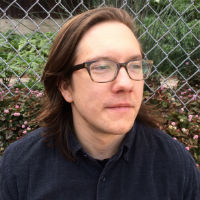 Kyle Booten is a Postdoctoral Fellow in the Neukom Institute for Computational Science at Dartmouth College. His recent work has appeared or is forthcoming inFence, Western Humanities Review, Poor Claudia, and the proceedings of the North American Chapter of the Association for Computational Linguistics. He holds a PhD from UC Berkeley and an MFA from the University of Michigan, Ann Arbor.  You can see his website at https://kylebooten.me.
Kyle Booten is a Postdoctoral Fellow in the Neukom Institute for Computational Science at Dartmouth College. His recent work has appeared or is forthcoming inFence, Western Humanities Review, Poor Claudia, and the proceedings of the North American Chapter of the Association for Computational Linguistics. He holds a PhD from UC Berkeley and an MFA from the University of Michigan, Ann Arbor.  You can see his website at https://kylebooten.me.
Bill Bly, We Descend, Volume 3
Bill Bly is the author of We Descend, an ongoing hypertext archive of writings begun in the 1980s with a fountain pen on notebook paper jammed in a clipboard: Volume One came out on floppy disk; Volume Two is on the web; Volume Three is under development. He has won the Stanley Drama Award and (with John McDaid) the John Culkin Award for Outstanding Praxis in Media Ecology. Bill was a founding member of the Hypertext Writers Workshop, and served as recorder for the legendary Cybermountain Colloquium. He has taught hypertext theory and practice at New York University and Fordham University, and was Director of Writing Programs at Wagner College. He lives in Mexico.
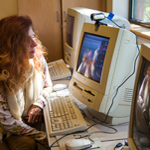
The emcee for the evening is Dene Grigar, a curator, e-lit artist, and digital preservationist from the Creative Media & Digital Culture Program at Washington State University Vancouver. She directs the Electronic Literature Lab and is President of the Electronic Literature Organization.
Sponsors include the ELO, Babycastles, & Washington State University Vancouver.
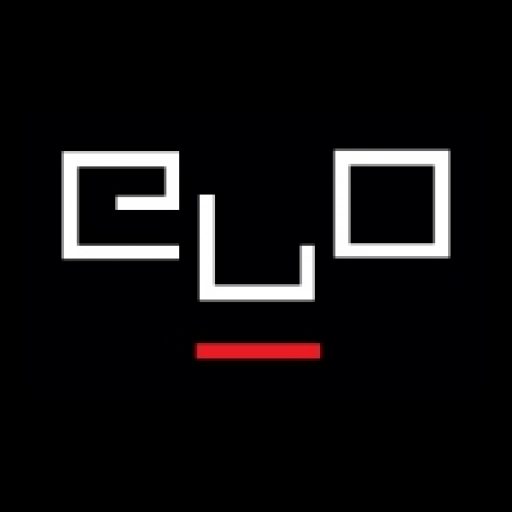

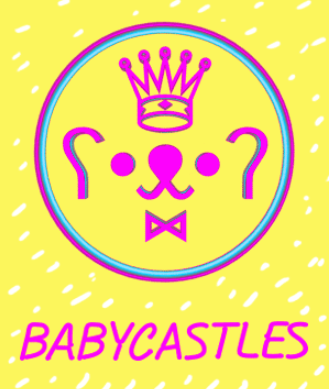
Presentation on Aleph Null
On Thursday at ELO12, Leonardo Flores, Giovanna DiRosario, Mark Marino will present with Jim Andrews on his work of visual poetry, Aleph Null.
New ELO Officers & 3 New Board Members
With the 4th International Conference, ELO announces its new officers and board members.
Taking over the reins from Joseph Tabbi will be incoming President Nick Montfort and Vice President Dene Grigar. Also, ELO announces 3 new members to the ELO Board of Directors: Fox Harrell, Carolyn Guertin, and Jason Nelson. Sandy Baldwin will take over as Treasurer and Mark Marino will continue as Director of Communication.
The term of the ELO President is three years.
Below you will find bios:
Nick Montfort, President
Nick Montfort writes computational and constrained poetry, develops computer games, and is a critic, theorist, and scholar of computational art and media. He is associate professor of digital media in the Program in Writing and Humanistic Studies at the Massachusetts Institute of Technology. He earned a Ph.D. in computer and information science from the University of Pennsylvania.
Montfort’s digital media writing projects include the group blog Grand Text Auto, the ppg256 series of 256-character poetry generators; Ream, a 500-page poem written on one day; Mystery House Taken Over, a collaborative “occupation” of a classic game; Implementation, a novel on stickers written with Scott Rettberg; and several works of interactive fiction: Book and Volume, Ad Verbum, and Winchester’s Nightmare.
Montfort, with Ian Bogost, wrote Racing the Beam: The Atari Video Computer System (MIT Press, 2009), the first book in the Platform Studies series. He wrote Twisty Little Passages: An Approach to Interactive Fiction (MIT Press, 2003), and, with William Gillespie, 2002: A Palindrome Story (Spineless Books, 2002), which the Oulipo acknowledged as the world’s longest literary palindrome. He also edited The Electronic Literature Collection Volume 1 (with N. Katherine Hayles, Stephanie Strickland, and Scott Rettberg, ELO, 2006) and The New Media Reader (with Noah Wardrip-Fruin, MIT Press, 2003). His current work is on narrative variation in interactive fiction and the role of platforms in creative computing.
Dene Grigar, Vice President:
Dene Grigar is an Associate Professor and Director of the Digital Technology and Culture Program at Washington State University Vancouver who works in the area of electronic literature, emergent technology and cognition, and ephemera. She is the author of “Fallow Field: A Story in Two Parts” and “The Jungfrau Tapes: A Conversation with Diana Slattery about The Glide Project“, both of which have appeared in the Iowa Review Web, and When Ghosts Will Die (with Canadian multimedia artist Steve Gibson), a piece that experiments with motion tracking technology to produce networked narratives. Her most recent project is the “Fort Vancouver Mobile Project,” a locative / mixed media effort that brings together a core team of 20 scholars, digital storytellers, new media producers, historians, and archaeologists to create location-aware nonfiction content for mobile phones to be used at the Fort Vancouver National Historic Site. She serves as Associate Editor for Leonardo Reviews
New Board Members
Fox Harrell:
Fox Harrell is a researcher, author, and artist exploring the relationship between imaginative cognition and computation. He and his laboratory, the Imagination, Computation, and Expression [ICE] Lab/Studio develop new forms of computational narrative, gaming, and related digital infrastructures and technical-cultural media with a basis in computer science, cognitive science, and digital media arts. He is an Assistant Professor of Digital Media in the department of Literature, Communication, and Culture at the Georgia Institute of Technology.
Carolyn Guertin:
Carolyn Guertin has a dual appointment in new media. She is Director of the eCreate Lab and Assistant Professor of Digital Media in the Department of English at the University of Texas at Arlington. She is also a faculty member at Transart Institute in Berlin, Germany and Linz, Austria, an international low residency MFA program in new media at Danube University Krems. She is curator of the celebrated collection Assemblage: The Online Women’s New Media Gallery out of the U.K., and was Senior McLuhan Fellow at the McLuhan Program in Culture and Technology at the University of Toronto, where she was SSHRC Postdoctoral Fellow from 2004-06. She has been a Literary Adviser to the Electronic Literature Organization since its inception, is a member of the MLA Committee on Information Technology, and is an editorial board member of Convergence.
She earned her PhD with a study of cyberfeminist digital narrative and the technologies of memory in the Department of English and Film Studies at the University of Alberta, Canada. She has taught, exhibited and published internationally, and does theoretical work in: cyberfeminism, hacktivism, born-digital arts and literatures, (global) film futures, information aesthetics, postliteracy and the social practices surrounding technology (especially social networking and participatory culture). She is working on a new book on new media art, authorship and the politics of creation in our digital world.
Jason Nelson:
Born from the computerless land of farmers and spring thunderstorms, Jason Nelson somehow stumbled into creating awkward and wondrous digital poems and interactive stories of odd lives. Currently he teaches Net Art and Electronic Literature at Griffith University in the Gold Coast’s contradictory lands. Aside from coaxing his students into breaking, playing and morphing their creativity with all manner of technologies, he exhibits widely in galleries and journals, with work featured around globe in New York, Mexico, Taiwan, Spain, Singapore and Brazil, at FILE, ACM, LEA, ISEA, ACM, ELO and dozens of other acronyms. But in the web based realm where his work resides, Jason is most proud of the millions of visitors his artwork/digital poetry portal http://www.secrettechnology.com attracts each year.
DAC 2009 Calls for Papers and Works! (May 1/Dec. 12-15, 2009)
Digital Arts and Culture (better known as DAC) 2009 has announced several calls to entice authors and critics of electronic literature. The conference will be held at UC Irvine December 12-15 and takes for its topic: “after media, embodiment and context.”
First and foremost a night of readings: Electronic Literary Arts Performances, curated by Jessica Pressman and Mark C. Marino.
From the call:
Each performance is limited to 5-7 minutes and should take the form of interactive engagement with the audience and dramatic presentations of creative digital-born works.
Second, two tracks in particular may appeal to ELO folks:
- Software/ platform studies, hosted by Jeremy Douglass and Noah Wardrip-Fruin
- Cognition and creativity, hosted by Fox Harrell
- A Space-Time of Ubiquity and Embeddedness — hosted by Ulrik Ekman and Mark Hansen.
Please see the official call for all the details.
UK Major Grant Award for e-lit: ‘Poetry Beyond Text’
British Arts and Humanities Research Council has awarded a major grant (£440,000 over 2 years) to ‘Poetry Beyond Text,’ which will include investigations into “digital poetry, books of poetry and photography, artists’ books and concrete and pattern poetry.”
This grant marks another sign of international interest and national arts investment in the exploration of electronic literature.
Below is news from their announcement:
Researchers at the Universities of Dundee and Kent have just been awarded a major grant from the Arts and Humanities Research Council, to study poetry ‘beyond text’.
The project, entitled Poetry Beyond Text: Vision, Text and Cognition involves researchers in English, Comparative Literature, Psychology and Fine Art in a 2-year partnership between the two universities. The team will be led by Dr Andrew Michael Roberts of the Dundee School of Humanities English Programme.
Read more UK Major Grant Award for e-lit: ‘Poetry Beyond Text’
2009 Initiatives: EL Collection v.2 and EL Directory 2.0
ELO announces 2 new resources of electronic literature for 2009: The Electronic Literature Collection, vol. 2, and the new Electronic Literature Directory.
1) The Electronic Literature Directory version 2.0 will feature an easy-to-use interface for accessing a robust collection of electronic literature, edited and annotated. As more faculty begin adding electronic literature to their courses, the directory will prove an invaluable resource for accessing new and classic electronic literature. These works have been vetted and documented by the ELO Working Group, coordinated by Lori Emerson. The directory will feature a new design, offering visitors more ways to find the kinds of e-lit they desire while also discovering works they could not have imagined.
Under the Direction of ELO president Joseph Tabbi, the ELD 2.0 was developed from 2006-09 by Maleeka Ingram, Stuart Moulthrop, Scott Rettberg, Stephanie Strickland, and ELO Technical Director Ewan Branda. The previous version of the Directory was developed by Robert Kendall and Nick Traenkner.
2) Following up on the widely distributed volume 1, ELO presents Electronic Literature Collection, volume 2. Like vol. 1, This second biannual collection will be available as a stand-alone disc (DVD) and an online collection. The editorial collective for the second volume includes Laura Borràs Castanyer, Talan Memmott, Rita Raley and Brian Kim Stefans.
These two resources with their wide arrays of works will offer yet more answers to the question what is electronic literature? More importantly, they provide reliable, edited collections of materials and links that ensure that scholars will not end their search for new elit on a 404 error. Stay tuned to the RSS feed for ELO for more updates soon.
